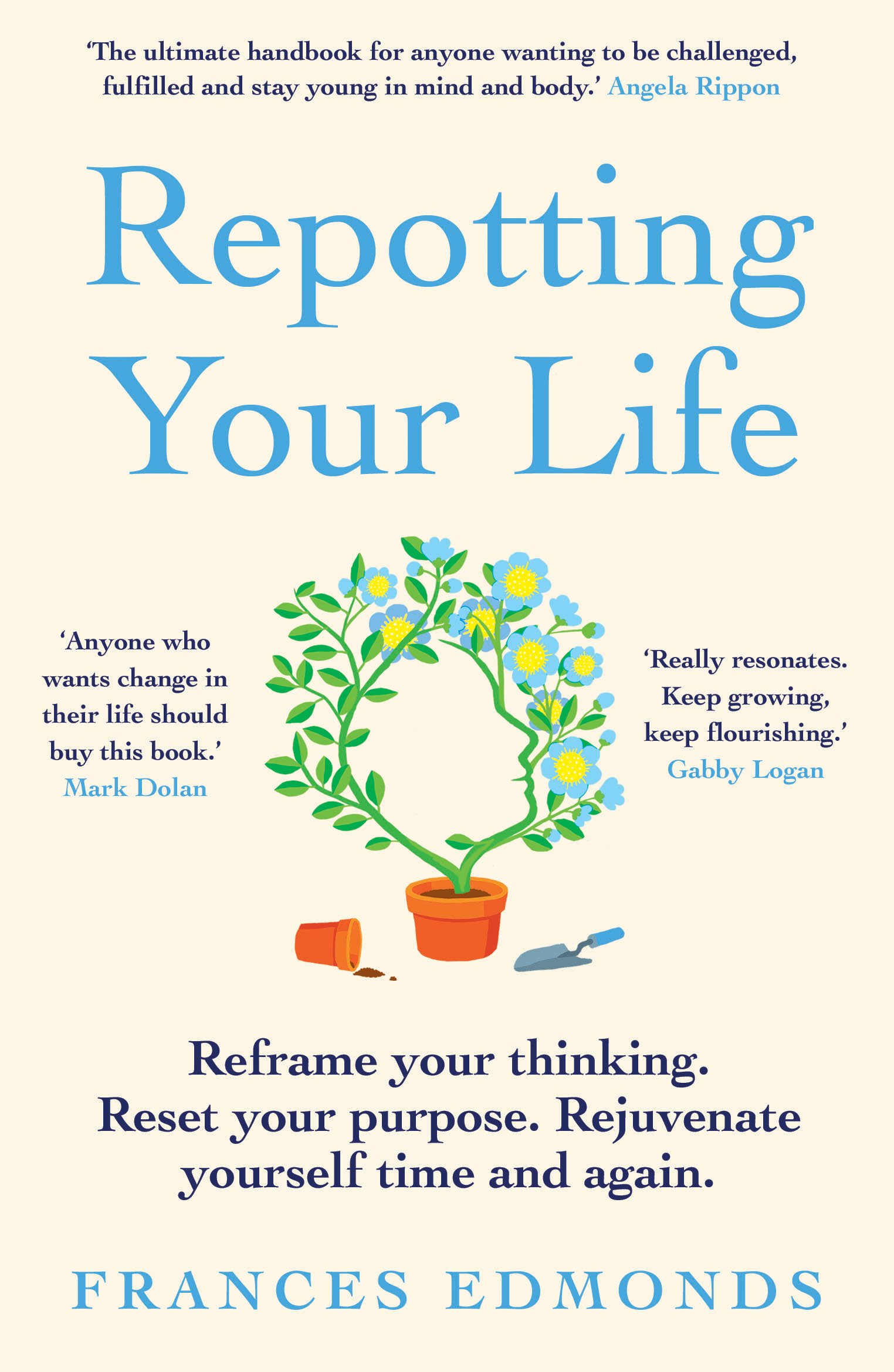True Grit
Experiencing existential angst, ennui, or tired-all-the-time fatigue? If your environment is stunting your growth, it could be time to ‘replant’ yourself physically and spiritually. Author of ‘Repotting Your Life’ Frances Edmonds explains…
Few occasions are celebrated with such unalloyed optimism as the christening or naming ceremony of a baby. Some time ago, I was privileged to attend one such event and to witness the introduction of a miraculous little girl to her ecstatically grateful extended family. I use the adjective miraculous because without the modern miracle of IVF this particular little girl would never have been born.
Events designed to mark life’s major transitions, those time-honoured rites of passage such as christenings, weddings, funerals and milestone birthdays, often serve as catalysts for reflection for those present. And so it was, as the ceremony progressed and I took my turn as godmother to cuddle the new baby, that I began to consider how lucky this little girl was to be born in an era when she may well live to celebrate her 100th birthday and to enjoy an extra 30 years of lifespan compared with a child born a century ago.
Lucky or cursed? As I started to imagine the course of this fledgling centurion’s life, my optimism became tinged with apprehension. Nowadays, we are all experiencing the seismic changes precipitated by innovations in such fields as information technology and artificial intelligence. What impact might hitherto undreamed of advances in hitherto unheard of areas have on the way this child will have to organise her hundred years?
The idea that we might have a job for life has already been relegated to the list of quaintly idiosyncratic expectations shared by previous generations, and our extended life expectancy has rendered the traditional three-phase ‘Learn – Earn – Retire’ model obsolete.
The problem we now confront is that society has yet to come up with either an alternative template or the culture and institutions necessary to negotiate the additional phases of our elongated lives. As Carl Jung famously observed way back at the start of the 20th century, there are no ‘colleges for forty-year-olds that prepare them for their coming life and its demands as the ordinary colleges introduce our young people to a knowledge of the world and of life’. Until communities across the world create solutions, we must rely on our own devices to come up with the answer.
My goddaughter slumbered on, blissfully unaware of the powerful forces at work around her, a modern-day Sleeping Beauty. If only, I mused, like the fairy godmother of the Grimms’ celebrated fairy tale, I could grant her some gift to help her negotiate the vagaries and vicissitudes of an increasingly volatile 21st century. As we celebrate her christening, it strikes me that this is merely one of the very many new starts that this baby will have to manage during her recently embarked upon life.
Much further along the longevity spectrum, and rapidly approaching the springtime of my senility, I often find myself looking back over a lifetime that has witnessed not only massive societal changes but also many profound, sometimes painful, personal transitions. According to the great British statesman Sir Winston Churchill, success is the ability to move from one failure to another with no loss of enthusiasm. On the basis of that very generous yardstick, I am comforted to think of my own biblically allotted lifespan as the most tremendous success.
Over a period of almost three score years and ten, I have moved from modern linguist and international conference interpreter, to writer and broadcaster, to keynote speaker, to parent and homemaker, to building contractor and business development networker, to longevity and well-being research fellow and cross-generational mentor – the list is still a work in progress. Transitions involving the challenges of a new job, the excitement of a new relationship or the demands for personal growth required by responsibilities such as parenthood or mentorship may prove exhilarating if, occasionally, exhausting. Working your way through the various phases of truly transformative transitions is usually a difficult and stressful process. The relief unleashed by sighting that metaphorical light at the end of the tunnel may blot out the pain endured to get there. It is, however, useful to remember what and how you were feeling when eventually the catalyst arrived that propelled you to ‘start digging’.
My own most recent alert came when I was watching a gardening programme. The presenter moved from the joyous profusion of colours, shapes and textures in his herbaceous borders to focus on a sad little specimen lurking disconsolately in a pot by his shed. For the benefit of the camera, he picked it up, the better to display its full wretchedness to the viewers at home. The poor plant seemed embarrassed by this sudden intrusion and a few of its remaining leaves fluttered lethargically towards the ground. The presenter was undeterred. Yanking the plant from the pot by its spindly stem, he pointed to a knotted tangle of roots circling endlessly round and round and interwoven into an impenetrable, tightly knitted ball.
‘This is what happens,’ he observed, ‘when a healthy plant is neglected and can’t find enough sustenance when it’s trying to grow. It’s now so weak that it can’t send out roots to nurture itself from the surrounding environment. This plant is potbound!’ He paused and stared mournfully into the camera for full dramatic effect. ‘Unless it’s repotted soon, this plant is going to choke itself to death.’
I had to restrain myself from cheering out loud: not at the potential fate of this poor plant, but at my own sudden insight of incandescent lucidity. In one short sentence, the presenter had diagnosed the malaise from which I had been suffering. Mr Gardening Guy had nailed it. This was what was wrong with me!
For quite some time, I’d been assailed by this nagging feeling that my own increasingly pointless efforts to flourish were going around in circles. The commitments, pleasures and pastimes that once I had enjoyed no longer seemed to engage or sustain me. Call it existential angst or ennui, or call it simply tired-all-the-time fatigue, but the more I struggled to ignore whatever it was, the worse the symptoms became. It was like fighting against the constraints of a straitjacket. Suddenly, the diagnosis implied was beyond all reasonable doubt. I was potbound. I’d been living in an environment that had worked well enough, but now I was feeling stifled by it. Not only was it stunting my growth, it was jeopardising my well-being. Hence the insistent sense that something was not quite right. It was clear that the time had come to extract myself from my current situation and to set out in search of a new, more propitious environment. It was equally clear that no convenient Mr Gardening Guy was ever going to organise my own repotting for me. However tough it might prove, and however much support I might garner along the way, this was a process of self-renewal that I’d have to work out for myself.
This realisation that I needed to ‘repot’ would soon be directing my next steps, the decisions I would make and what I wanted for my future. What I learnt along my journey of repotting – a journey that would take me to a whole new country and an undertaking full of possibility and growth – also offered a useful new model for navigating the increasing number of transitions that we are all called upon to make throughout life in the modern world. And so my gift to my god-daughter would be an understanding of how best to master the challenging and often daunting process of moving on and branching out. My gift would be proficiency in the art of ‘repotting’.
Repotting Your Life is available now in paperback, published by Elliott & Thompson

